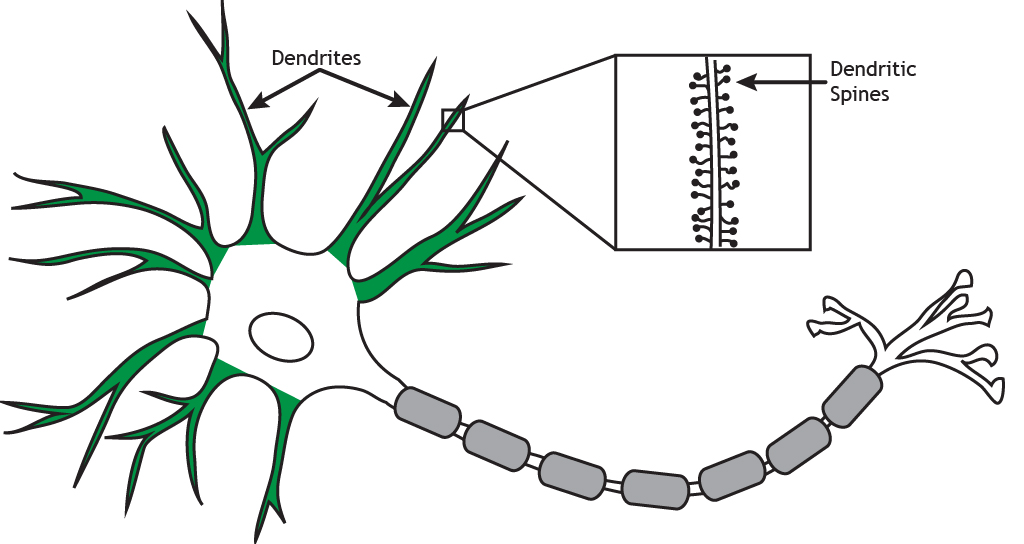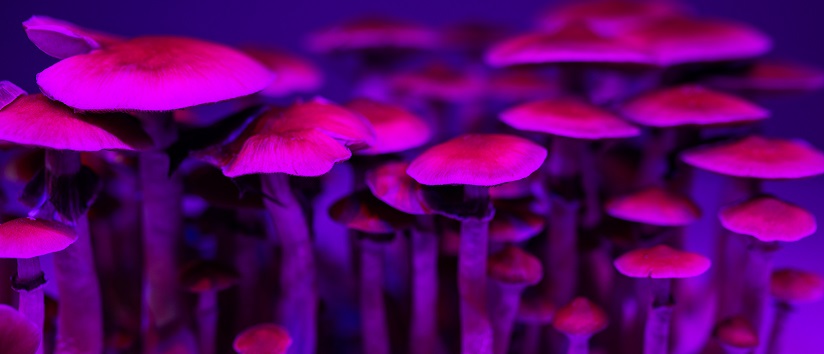Magic Mushroom Rewire Your Brain--For The Better
3/30/2023 3:20 PM

Magic Mushroom Rewire Your Brain--For The Better
Psychedelic mushrooms got their bad rap during the war on drugs, but before Nixon's time, they were used as medicine, and a means to connect with the divine. Unsurprisingly, as people are turning away from mass-produced, addictive pharmaceutical drugs, they have embarked on a journey to find a more natural alternative. With more research being done on how this naturally growing fungus can benefit the brain, people are jumping on the chance to battle different ailments through psychedelic treatment. What they have found so far could be life-changing for people suffering from depression, anxiety, and PTSD.
What Makes a Mushroom Magic?
 There are millions, yes millions, of different types of mushrooms in the world, many being edible, medicinal, and some psychedelic. Psychedelic mushrooms create sensations of euphoria and altered perception with the help of a special ingredient, psilocybin, which turns into the active psilocin in the body. This creates what feels like a huge serotonin boost, changing how the central nervous system works. This family of funky fungi works similarly to other psychedelics by activating the 5-HT2A receptor, which is also known more simply as the serotonin receptor, which does more than produce feelings of joy. This receptor has many pathways, specifically in the prefrontal cortex, which is essential for learning, cognitive function, and behaviour.
There are millions, yes millions, of different types of mushrooms in the world, many being edible, medicinal, and some psychedelic. Psychedelic mushrooms create sensations of euphoria and altered perception with the help of a special ingredient, psilocybin, which turns into the active psilocin in the body. This creates what feels like a huge serotonin boost, changing how the central nervous system works. This family of funky fungi works similarly to other psychedelics by activating the 5-HT2A receptor, which is also known more simply as the serotonin receptor, which does more than produce feelings of joy. This receptor has many pathways, specifically in the prefrontal cortex, which is essential for learning, cognitive function, and behaviour.
That Funky Feeling
So, you've drank a steaming hot cup of mushroom tea or just downed some slightly gross dried mushroom caps; what now? Once you nibble on these mind-altering little fungi, there's no going back, and the trip can last anywhere from 3-6 hours. Everyone is affected differently depending on the dose, where you are, and who you're with. If you've taken enough, after around 30 minutes, the hallucinogenic properties start kicking in, and perceptions get wild. Colours, sounds, and objects become distorted, and some people hear sounds or see music. On a good trip, your body feels light, and it can feel like you're having a magical experience communing with higher spiritual powers.
Rewiring the Brain
 If you're stuck in a rut and need to find a way out of old habits, then rewiring the brain may not be as complicated as you think. Suppose you're just suffering from the cognitive decay of set routines. In that case, things like taking new routes to work, staying active, and daily meditation could rewire the brain enough to pull you from your rut, but for people suffering from PTSD, depression or chronic pain, this might not be enough. When you take the same route to work every day, it can start to feel like you're on auto-pilot, not even remembering how you got to your final destination. Finding new roads to get there or shaking up your routine will leave you more present and create new connections for overall brain health. On the other hand, if your car keeps breaking down and you don't have a way to get across the city anyways, psychedelics act like a mechanic. Now that you're back on the road and your car starts every time, you can begin your adventure and reach where you need to be.
If you're stuck in a rut and need to find a way out of old habits, then rewiring the brain may not be as complicated as you think. Suppose you're just suffering from the cognitive decay of set routines. In that case, things like taking new routes to work, staying active, and daily meditation could rewire the brain enough to pull you from your rut, but for people suffering from PTSD, depression or chronic pain, this might not be enough. When you take the same route to work every day, it can start to feel like you're on auto-pilot, not even remembering how you got to your final destination. Finding new roads to get there or shaking up your routine will leave you more present and create new connections for overall brain health. On the other hand, if your car keeps breaking down and you don't have a way to get across the city anyways, psychedelics act like a mechanic. Now that you're back on the road and your car starts every time, you can begin your adventure and reach where you need to be.
How Does It Work?
Psilocybin, the hallucinogenic ingredient in magic mushrooms, has been used medicinally throughout human history, but they're just finally figuring out why that is. New studies show that one big trip rewires the brain by building new connections in the brain. Neurons are responsible for sharing information through different parts of the brain and nervous system using chemical signals and electrical impulses. Psilocybin works by altering the spines on the finger-like dendrites that branch out from the neuron cell (picture a snowflake with a couple of longer tails). The active ingredient in magic mushrooms increases the size of these essential spines by around 10%, making it easier to strengthen and build new connections. Studies show that new connections form within a day after ingesting magic mushrooms, lasting for months or even years. These new connections are essential to rewiring the brain, known as neuroplasticity, which allows the brain to learn and adapt.
Can I Skip the Trip and Microdose?

Microdosing has become a more mainstream way to keep the creative juices flowing by taking a small number of mushrooms multiple days a week. By keeping the dose tiny, you can harness many of the benefits without feeling the stronger effects of the hallucinogenic mushroom. Many of the most creative minds of our time swear by psychedelics as a way to open their minds and boost creativity, especially in the competitive tech field. While I am a massive advocate of this daily practice and firmly believe it is beneficial for mental and physical health, you won't see the same results as taking one large dose. In order for the brain to rewire, it needs a big kickstart.
Lasting Change
As a person's age goes up, plasticity typically goes down. This especially includes personality traits of openness like imagination, abstract thinking, and general broad-mindedness. This could be why people become more stuck in mundane routines and less accepting of change as they age. Mushrooms are derailing the idea that personality can't change after 30, and needless to say that a world of people brimming with acceptance and creativity is one I prefer to live in. If your out-of-date uncle had one fantastic trip on mushrooms, I can guarantee there would be fewer heated discussions around the holidays. While some people choose to include psychedelics into their routine, many others find that just once is enough to pull them out of the mental rut they were in and change their thinking way into the future.
Have you gone on a magical mushroom journey that has changed your life or way of thinking? Let us know in the comments!







